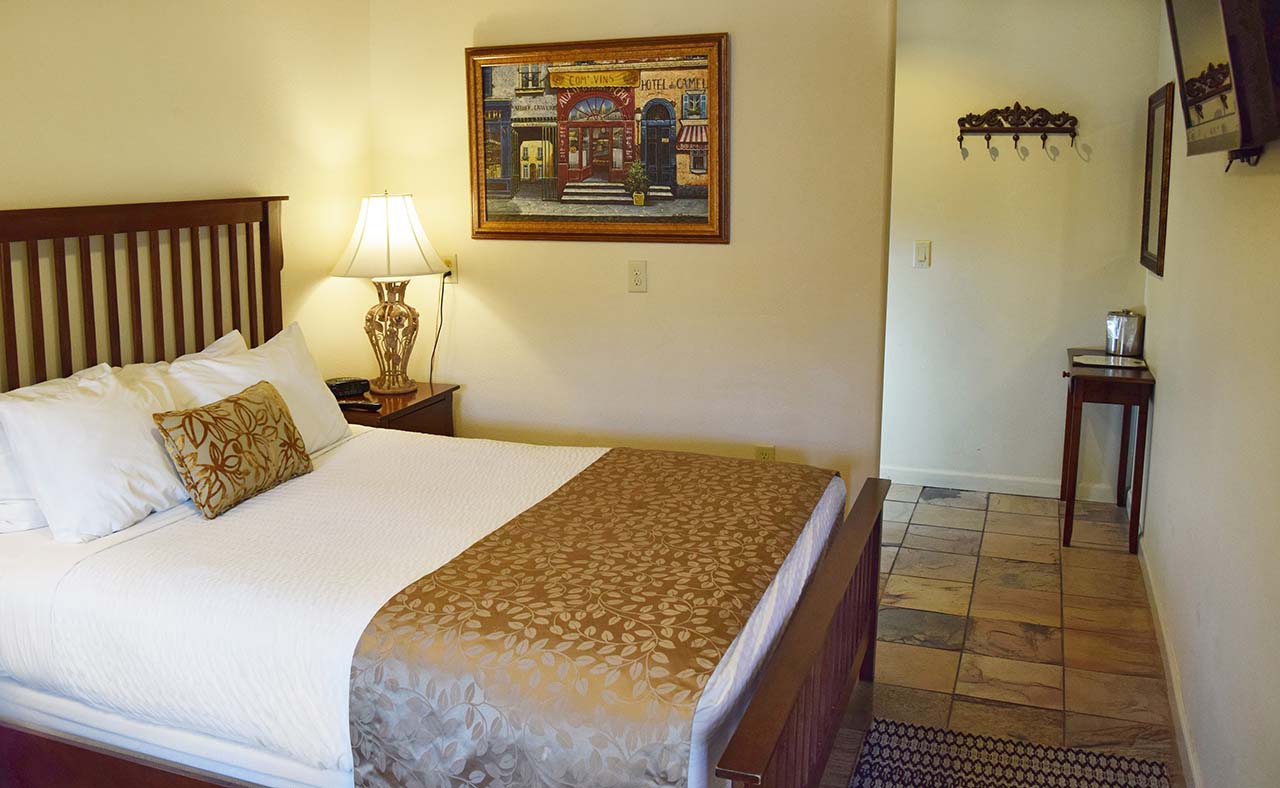
The Polly Crandall Room
Search Rooms
Silverton’s Founding Mother: Polly Lavinia Crandall was born the oldest of ten children in New York on November 24, 1825, and in 1842, moved with her family to Wisconsin. For the next ten years Polly and her brothers labored on the farm, planting crops and clearing land. Polly became a teacher and married another school teacher, Thomas Coon, in January 1845. In 1850, Thomas traveled west and settled in the Willamette Valley where he continued teaching.
Twenty-six year old Polly and her small daughter Cornelia, crossed the plains in 1852 to join her husband in Oregon in a wagon train organized by her parents, Paul and Sally Crandall. They traveled from Wisconsin via the Barlow trail. Shortly after she arrived here, Thomas’s health failed; he passed away in January of 1954. Polly gave birth to a son, Thomas Roy Coon in March of that year.
Room Amenities
- One Queen
- No Pets Allowed
- Bathroom With Shower / Tub
- Smart TV
- WiFi Internet
- Heat / Air Conditioner
- Alarm Clock
- Coffee Maker
- Hair Dryer
Thomas Coon had a donation land claim on Silver Creek, comprising land where much of Silverton is now located. Upon the death of her husband, Polly had the claim surveyed into lots and sold them off to form the center of the new town. It is said, that in filling out the plat, she was asked for a name for the plat and she gave the name Silverton for Silver Creek which flowed through the area.
In 1855 she married Stephen Price, a millwright, who had built the Smith and Barger grist mill, the first flour mill in the area. Together they had a son, Eugene.
In 1855 Polly’s father and brother, Clark, moved the two story building that housed Ai Coolidige’s store about two miles from Milford to Silverton to a lot that Coolidge had bought from Polly Price for $25. He continued to operate out of the store while it was being moved. The two-story wood frame building was later used as a hotel.
Polly Crandall Coon Price died on October 22, 1898 just a month short of turning 73. She is buried in Hood River where her son Eugene was also an educator.
A diary kept by Polly Coon, “A Journal of a Journey Over the Rocky Mountains” was published in 1956 as part of a series of volumes compiled by Dr. Kenneth L. Holmes, a history professor from Western Oregon State College (as it was known then) in Monmouth. The collection is called “Covered Wagon Women: Diaries and Letters from the Western Trails 1840-1890.” Polly’s diary is found in Volume Five. There is a typewritten copy of her diary at the museum for anyone interested in looking at it.
Sources: Jeff Brekas, Florence Read Bowman, Mildred Thayer

